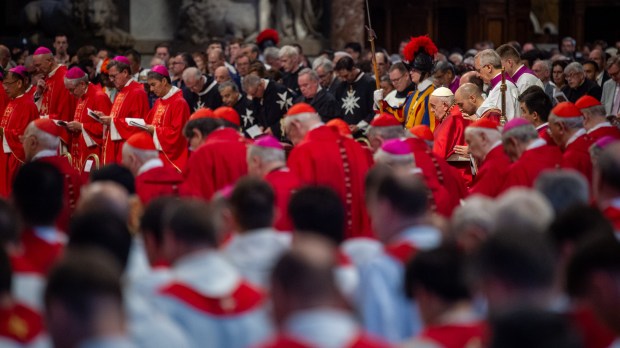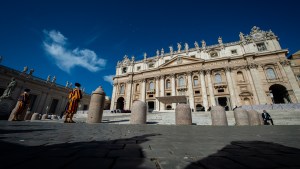The new prefect of the dicastery for the Doctrine of the Faith (DDF), Argentine Archbishop Víctor Manuel Fernández, will not make the fight against abuse the focus of his own work because he feels inadequately prepared. For that, he plans to rely on “professionals who know a great deal about the subject and who are working very seriously.”
The new prefect, appointed July 1, will head the dicastery that is in charge of dealing with priests who are accused of committing abuse. In fact, Pope Francis rearranged the dicastery in early 2022, so that a particular section has resources to focus especially on that.
In a post published on Facebook, the Argentinean archbishop explained that he had told Francis of his reluctance to tackle this high-stakes subject.
In his Facebook post, titled “What Francis is asking of me,” Archbishop Fernández revealed that he had already turned down the position in the past. Among the reasons he cites for having declined is that “the task includes the matter of the abuse of minors and I don’t feel prepared and have not been trained for such questions,” he says.
However, writes the archbishop, the Pope reiterated his request “when he was in the hospital.” The 86-year-old Pontiff was hospitalized from June 7 to 16 for abdominal surgery.
In such a moment, “You can imagine that it was impossible to say no to him,” says his compatriot.
“He explained to me that the question of abuse was now the responsibility of a mostly autonomous section, with professionals who know a great deal about the subject and who are working very seriously.”
In a unique letter published with the appointment, the Pope asks the new prefect to devote his “personal commitment more directly to the dicastery’s main objective, which is to ‘keep the faith.'” He explains that the section of the dicastery dedicated to disciplinary matters and responsible in particular for addressing the abuse of minors is run by “very competent professionals.”
Thus Archbishop Fernández explains that he will be focusing on an area that is “of great concern” to Pope Francis: “promoting a way of thinking that knows how to dialogue with what people live, encouraging free, creative, and profound Christian thought.” He sees this as “a wonderful challenge,” though he expects to find opposition, as “there are people who prefer a more rigid, structured way of thinking, at war with the world.”
Referring to the history of his dicastery, which was formerly called the Holy Office, the new prefect, who will take up his post in mid-September, asserts that “errors are not corrected by persecution or control, but by the growth of faith and wisdom.” He adds that “this is the best way to preserve doctrine,” echoing the Pope’s words in his letter. He refers in particular to the Inquisition’s use of torture, which the Pontiff alluded to in noting that in the past, members of the dicastery had even relied on immoral methods in trying to chase down “possible doctrinal errors.”
Mismanagement of an abuse case in La Plata?
When Archbishop Fernández was appointed, an American organization BishopAccountability.org, described Pope Francis’ choice as “disconcerting and troubling.” The site aims to track reports of abuse around the world, and took issue with his handling of a reported case in La Plata.




